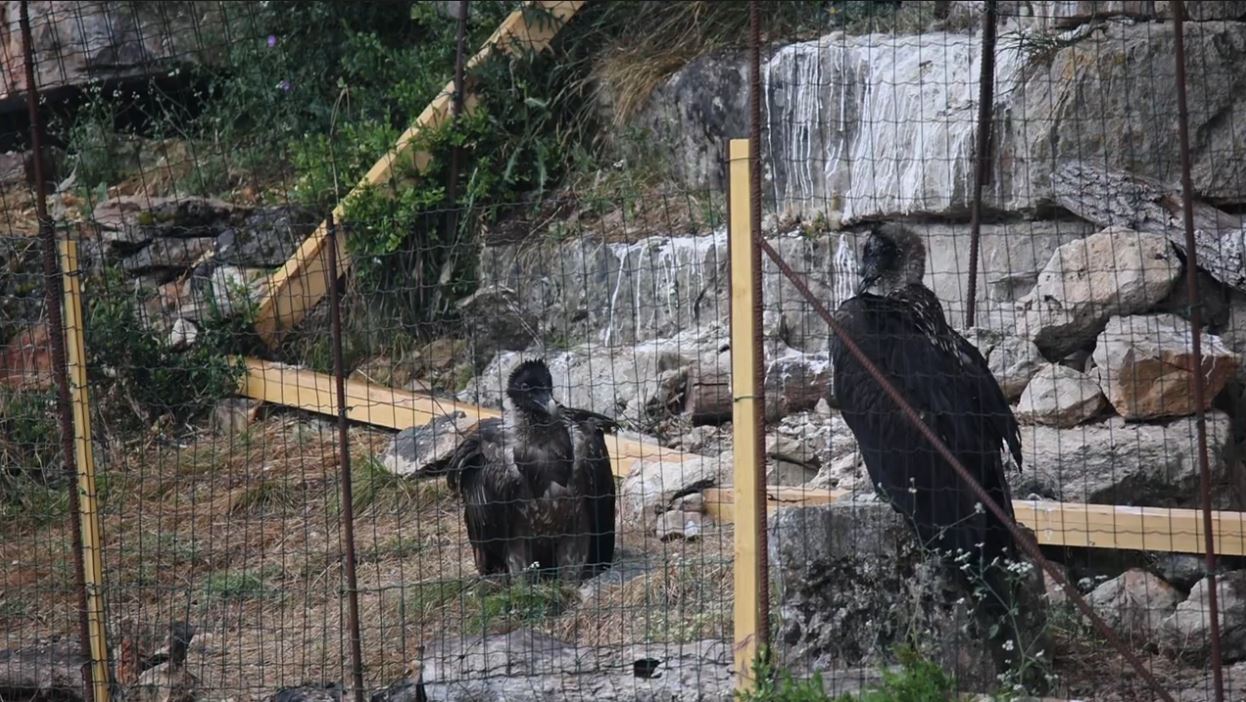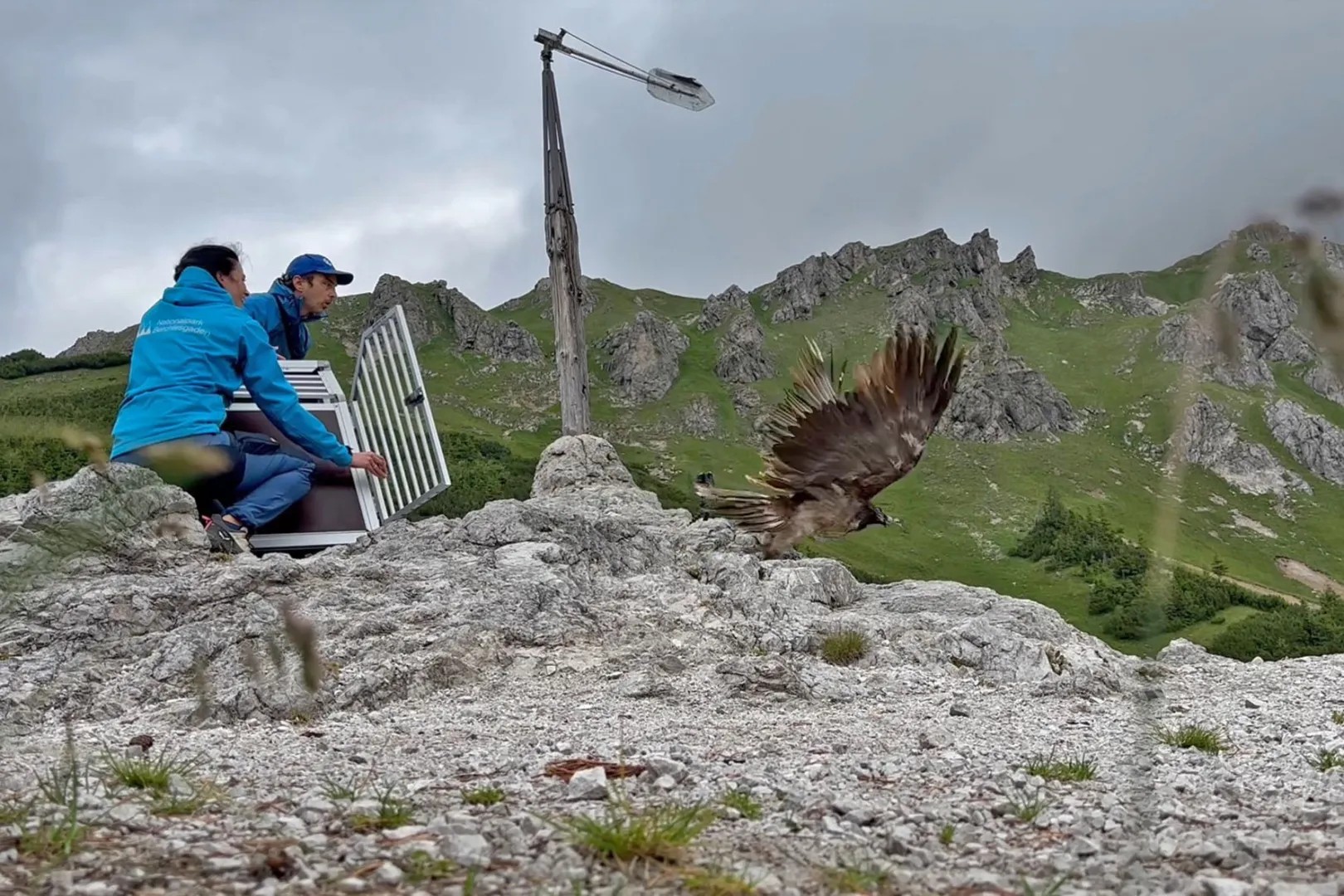An adult male bearded vulture was found dead, poisoned, in late September in Huescar (Granada) – the male was 6 years old. The post-mortem and toxicological analysis done afterwards indicated that it had died after ingestion of carbofuran, a powerful insecticide that has been banned but is often still used illegally to lace baits against predators. In this case the bait was found inside the dead bearded vulture.
The male had been released in 2010 in Parque Natural Sierra de Castril, within the ongoing reintroduction project, and was starting to settle in the area and was part of the third breeding pair formed, and was seen often with two subadult females, Viola and Encina.
The area where the poisoned bird was found has been thoroughly combed by the police, including by the specialized canine brigades, and the Junta de Andalucia opened a criminal case.
After several years without any mortality due to poisoning, this year saw the death of at least three bearded vultures in the region, a serious blow to the reintroduction project: in late April Zafra, a bearded vulture released in 2012, was found dead in the Sierra de Magina (see photo). In mid-September the remains of another bearded vulture – a female released in 2014, Bujaraiza – were also found nearby. It had sent the last signal in April, and it is highly likely that its death coincided with the poisoning of Zafra.
This indeed was a blow to the efforts to restore the species in the region – Zafra and the male found dead in Huescar were probably the best candidates to start recruiting into the breeding population soon. Of all the birds released before 2010, and that are now adults, only three are left – including the pair that bred last year.
The Junta de Andalucía, who leads the reintroduction project, has acted swiftly following the poisoning of Zafra, and this summer banned temporarily hunting and cattle farming in two estates of Sierra Magina, following the finding of poisoned baits there, which could have caused the death of Zafra and Bujaraiza. After the corpse of Zafra was found (due to the GPS tag it carried), wildlife agents realized 16 surveys in the area, and collected 44 samples, some of which have turned to contain poison – carbofuran and aldicard, both illegal substances. The poison was found in animals that probably ingested the baits – an Eagle, a genet and an owl, as well as on a sheep. This led the regional government to stamp preventive hunting and grazing bans, while the criminal proceedings have been launched. The regional government has also met with the local councils, local hunters and cattle farmers to discuss the situation.
The wildlife law in Andalucía allows for the preventive suspension of hunting and grazing rights, and also the suspension of EU subventions to cattle farming, for “unsustainable natural resources management”.
With the three bearded vultures found dead this year, this raised the total number of poisoned birds to 7 – out of a total of 44 bearded vultures released so far in Andalusia. Two others died because of lead poisoning and 4 of unknown causes, while there is no information on another 5 birds – at least 26 birds (60%) are still alive. The last poisoning of a bearded vulture had happened in 2011, when the programme was temporarily suspended, and when the Junta de Andalucia doubled its anti-poisoning campaign.
Earlier this year a court in the region has given a 18 month suspended sentence to a local person who had poisoned a berded vulture in 2008, while another person found guilty of poisoning two individuals of this species in 2011 was given a 6 month sentence and condemned to pay a 6,000€ fine.
The VCF has been in contact with the Junta de Andalucia and the Fundación Gypaetus throughout – who coordinate the reintroduction project locally, and we have asked the authorities to step their fight against poisoning.
All feedback received so far indicates that the authorities are taking this case very seriously and will continue their efforts to eradicate poisoning from the area. We will continue to monitor the situation – a representative from the Andalusian government is expected to come to Austria where the VCF is organising this year´s annual bearded vulture meeting, to explain what the authorities will do about this. So far the reintroduction project has been very successful – last year a pair bred in the wild for the first time, and this year at least 3 pairs were nest building.
Photo: Junta de Andalucia



